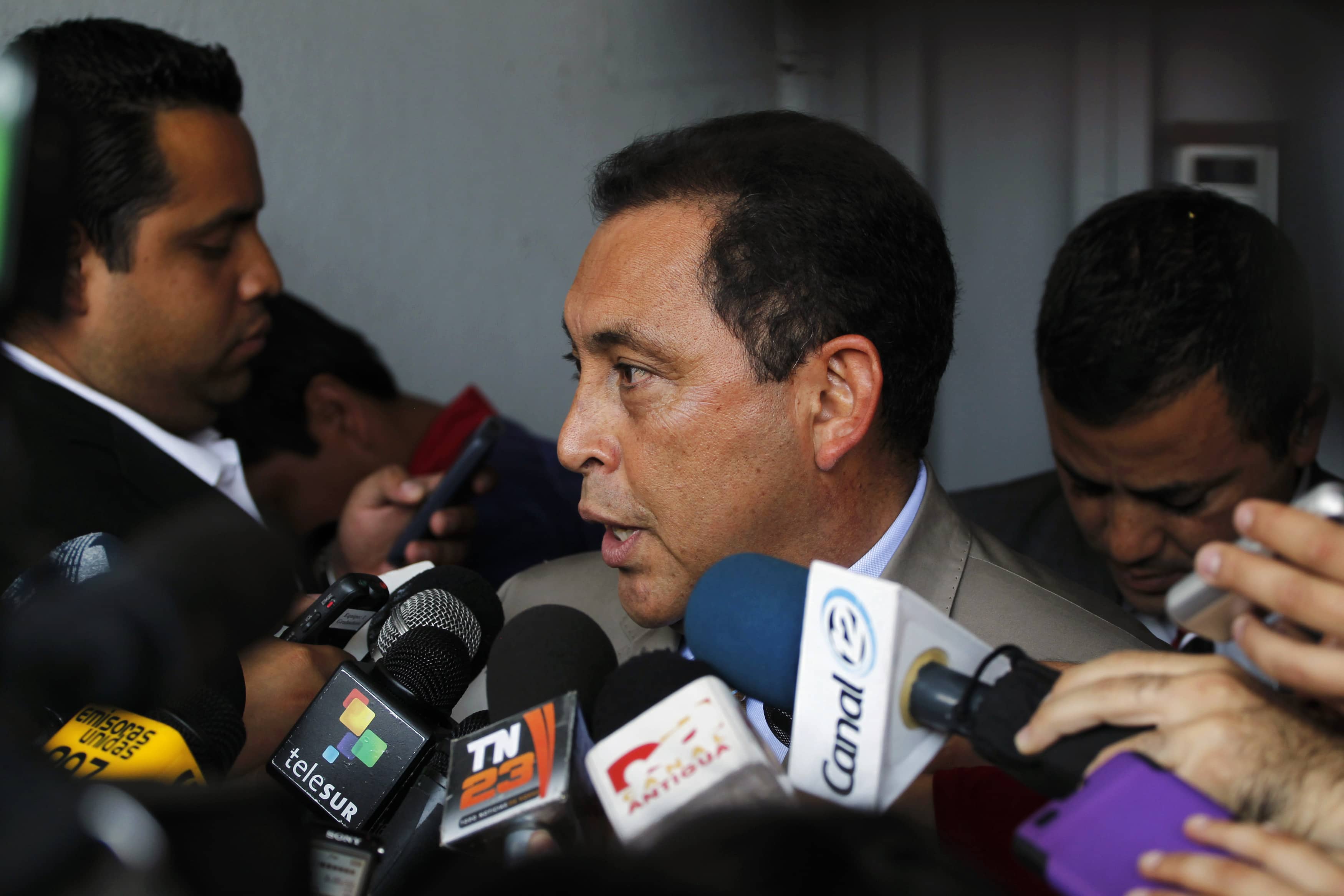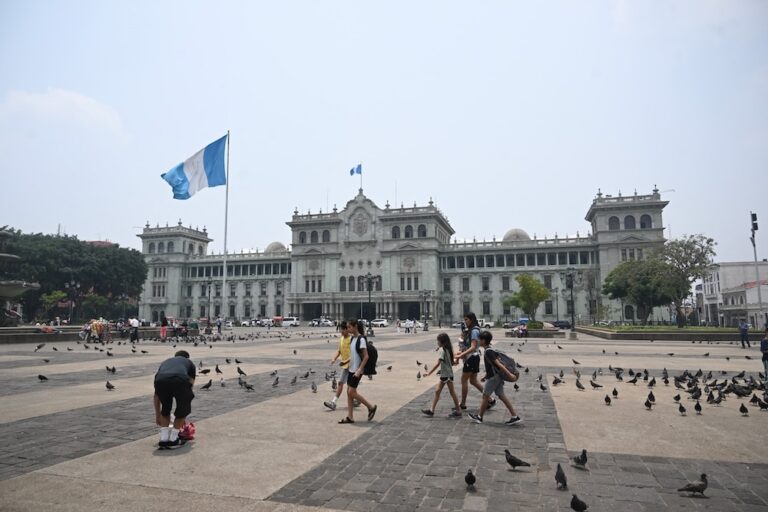In the midst of few guarantees for the safety of journalists in Guatemala, authorities are endorsing the creation of a body that may further increase the vulnerability of freedom of the press.
In the midst of few guarantees for the safety of journalists in Guatemala, authorities are endorsing the creation of a body that may further increase the vulnerability of freedom of the press.
The state of freedom of expression in Guatemala recently took a turn for the worse when three journalists were killed in the same department in less than one week.
In the past 15 years in Guatemala, 27 journalists and media workers have been killed, and the majority of these crimes have gone unsolved.
During the administration of President Otto Pérez Molina, seven members of the press have been killed, four of these in Suchitepéquez department in southwestern Guatemala, including the three most recent murders.
Looming over this terrible context is a new threat for freedom of expression in the country: the creation of an “Anti Media Terrorism Foundation”.
The undersigned members of the IFEX-ALC alliance are deeply concerned by the announcement by various government spokespeople regarding the creation of an “Anti Media Terrorism Foundation”, which may represent a serious threat to freedom of expression.
According to press reports, the Ministry of the Interior said that amongst the objectives for the new foundation are the “defense of public order and the combating of information from media outlets that invalidate the rights of the individual and public and private institutions.”
In Guatemala, the rights of freedom of expression and freedom of the press are guaranteed in the constitution and in a law on dissemination of thought. The country is also party to the Universal Declaration of Human Rights, under which the state has a responsibility and an obligation to promote and defend the right to free expression, something that is fundamental to democracy.
Guatemala is also part of the Inter-American Human Rights System, which, in 2000, approved the Declaration of Principles on Freedom of Expression. Principle 5 of that declaration states: “Prior censorship, direct or indirect interference in or pressure exerted upon any expression, opinion or information transmitted through any means of oral, written, artistic, visual or electronic communication must be prohibited by law. Restrictions to the free circulation of ideas and opinions, as well as the arbitrary imposition of information and the imposition of obstacles to the free flow of information violate the right to freedom of expression.”
Likewise, in the document on the Background and Interpretation of the Declaration of Principles, the Inter-American Commission on Human Rights points out that “it is unacceptable for economically powerful sectors or the State to exert economic or political pressure aimed at influencing or limiting the expression of individuals or the mass media. In this regard, the Inter-American Commission has stated that the use of authority to limit the expression of ideas lends itself to abuse, since stifling unpopular or critical ideas and opinions restricts the debate that is essential to the effective functioning of democratic institutions. Limitations on the free flow of ideas that do not incite lawless violence are incompatible with freedom of expression and with the basic principles that form the underpinnings of the pluralistic, democratic way of life in modern societies.”
Ileana Alamilla, Director of the Centro de Reportes Informativos sobre Guatemala (CERIGUA), the local IFEX-ALC member in Guatemala, said that for the moment, while the creation of this foundation is not an imminent threat to freedom of expression, “It is a preview of what could be done against the press”.
Pedro Vaca, in his role as spokesperson for the IFEX-ALC, said “It is worrying that institutions are being created that can lead to the stigmatization of journalists and an increase in the vulnerability of the press in Guatemala. According to international standards, stigmatization generates conditions that allow for attacks. Public officials are meant to be guarantors of favourable conditions for freedom of expression. We are sad that this is happening at a time when the press needs more support from the state, in the wake of the murders of three journalists in Suchitepéquez.”
As member organisations of the IFEX-ALC, we ask:
– That the government of Guatemala, particularly the Ministry of the Interior, the entity that has approved the creation of the “Anti Media Terrorism Foundation”, comply with the constitutional mandate to guarantee the right to freedom of expression
– That the public prosecutor investigate the crimes committed against journalists, in order to punish those responsible and combat the impunity that rules over these crimes in Guatemala
– That the Guatemalan authorities advance the creation of the journalists’ protection programme and adopt measures to guarantee the participation of journalists in the building of the programme. Authorities should implement prompt and effective action to successfully complete this project, which was proposed by CERIGUA and 10 other journalists’ associations from all over the country
It is important to remember that this is the last year for the current government to implement the protection programme, which it committed to adopting on 3 May 2012. This decision was ratified during the 2012 Universal Periodic Review (UPR) on Guatemala, which was attended by an IFEX mission to the United Nations in Geneva. Only concrete results will show the government’s support for the defense of freedom of expression and respect for freedom of the press.



